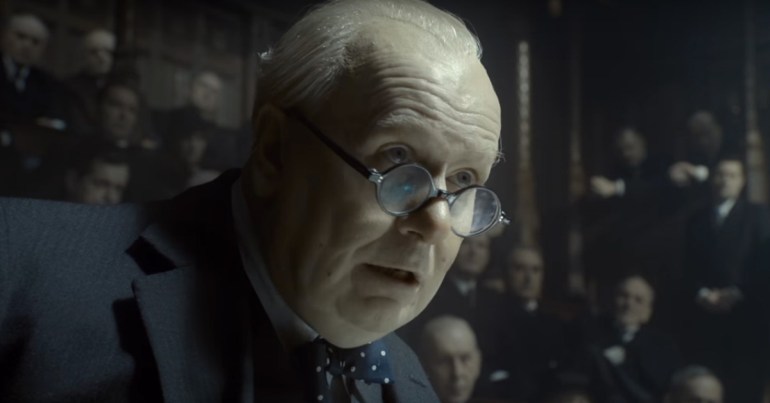I had a bit of Deja vu seeing this film; less than 9 months ago, I saw a very similar film Called Churchill, that played with the unsettling difficulties that plagued working with and for Winston Churchill. This film takes a similar path, with an impending danger forcing the hand of one of the most well-known leaders of our lifetimes. Where Churchill remained rather straight-laced, Darkest Hour has a lot going for it including the turn of Gary Oldman unrecognisable as the titular character.

The film plots the time between Churchill’s ascension as Prime Minister through to the evacuation of hundreds of thousands of soldiers from Dunkirk. It’s a tale well told, but for younger audiences that didn’t pay attention in History might open their eyes to the inner workings of governments and these momentous, historic decisions. The entire story is further heightened by some beautiful cinematography that evoke the senses of isolation and loneliness that shrouds the office of Prime Minister. Gorgeous shots that pit Churchill in contained environments against a landscape of darkness are the most provocative, leading the eyes to focus in on the last minute acting decisions made by Oldman.
Oldman commands this film, keeping the attention fixed on him throughout and completely unrecognisable in prosthetics and demure. While a similar take on Churchill’s characterisation is seen in many many different interpretations, Oldman grounds his go in humanisation and those connections he has with his wife, family and workers. His only scene with the public stands out as incredibly poignant too; the writing drives these new threads of Churchill forward while bringing out the fire and fury known to all. The supporting cast includes Lily James, who’s turn as Churchill’s PA strikes such an interesting relationship with the protagonist, showing both the often disregard for others Churchill had and the caring, emotional side that his wife wants the world to see.

Gary Oldman’s turn has already sent the awards season into a flurry, winning awards from the Golden Globes and the SAGs. It’s easy to see why, but there is a sense the other elements of the film fall slightly flat mainly down to the concentration on Churchill. It only brings the film’s overall accomplishments down slightly, slowing the pace down and doesn’t unpick the relationships between others – Churchill is front and centre, rather than a web being created around the players. Maybe historically accurate, maybe too fixated on the main player, but it’s only a small tarnish.
Historical films such as these sometimes forget to connect with an audience, but Oldman fixates you and brings you further and further into the decisions that Churchill had to make for the entire country and, in a way, the world. Throw in the tantalising sets and the almost-fully realised supporting cast, Darkest Hour is a strong addition to the genre.
Check out the trailer below:




